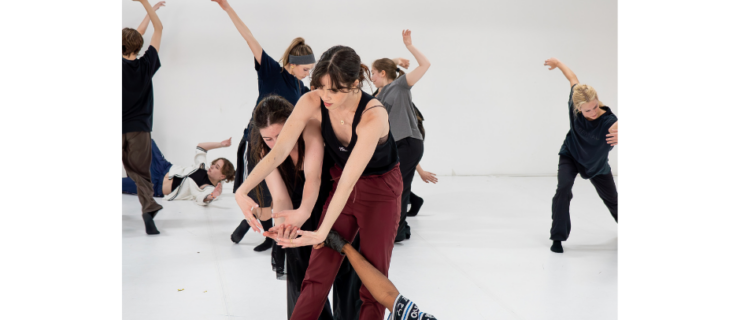Female Power, Male Power in Fela!
Fela!,
which opens tonight at the Eugene O’Neill Theatre, starts with an intoxicating wave of female pelvic power. Fifteen or 20 gorgeous women dance to Fela Kuti’s Afrobeat music all over the stage, and Marina Draghici’s fantastic costumes make their rear ends look like bird tails. In the pure art and articulation of butt-circling, they could rival Urban Bush Women’s Batty Moves.
The spiritual half of female power is represented by Fela Kuti’s mother, Funmilayao, played and sung beautifully by Lillias White. It is she who encourages her son to defend what he believes and not forsake his home country of Nigeria—from beyond the grave.
But Fela!, directed and choreographed by Bill T. Jones, is about male power—both of the extraordinary musician and renegade Fela Kuti, and of the male cruelty that puts an end to Fela’s Shrine (nightclub) in Lagos.
Sahr Ngaujah fits the part of the rebel-turned-rock-star like a glove. He is a nonstop force of male energy onstage, almost like Mick Jagger, but with a wider range including humor and self-effacement. And he can jump like a cat, just springing high up in a suddent moment of excitement. As Fela, he is disgusted with the corruption of his country—and yet he’s no angel himself. His emotional range from caustic anger (“The British took our diamonds and left us with tea and gonorrhea”), to delight (when the authorities did not find igbo [weed] in his shit), to exhaustion (undergoing a near-drowning form of torture), keeps us totally engaged.
But so does the dancing, which evolves from separately gyrating bodies to eloquent ensemble choreography, and which gradually shifts from female-centered to male-centered. One could speculate on how much of the choreography Bill T. actually did, not being versed in African dance. But, as in the tradition of West Side Story, where director/choreographer Jerome Robbins hired Peter Gennaro to choreograph the Sharks’ dances, Bill T. has brought in Maija Garcia, a dancer in his company, as associate choreographer. Garcia is from Cuba and probably way more familiar with African forms than Bill T. But in the last act, when the dancers do a group section with partnering, it’s easy to identify this section as his work.
Fela!
combines the splendor of Lion King with the first-person storytelling of Passing Strange. But unlike these shows, it does not end happily. Ugly reality intrudes when we learn of the hideous atrocities the Nigerian army inflicts on Fela’s group, including his mother.
Refreshing isn’t the right word for this gritty yet exuberant musical. Maybe the word is edifying. In any case, it’s nice to see a new musical on Broadway that brings major world issues to our attention.
Pictured: Sahr Ngaujah as Fela. Copyright Monique Carboni, courtesy
Fela!




